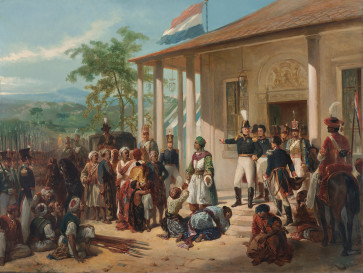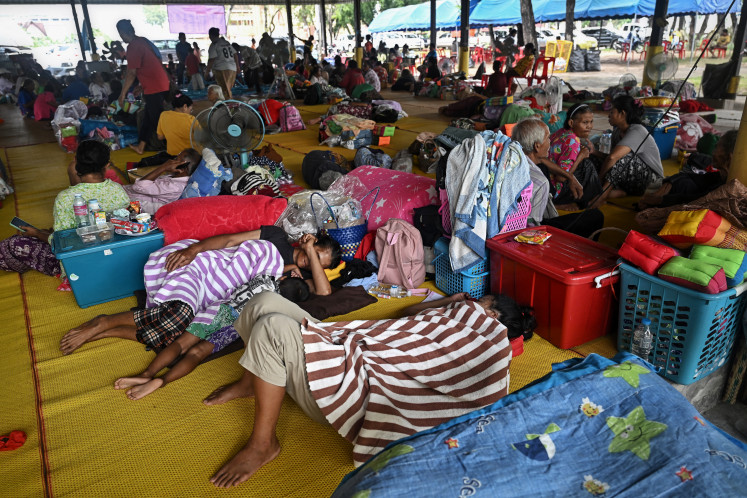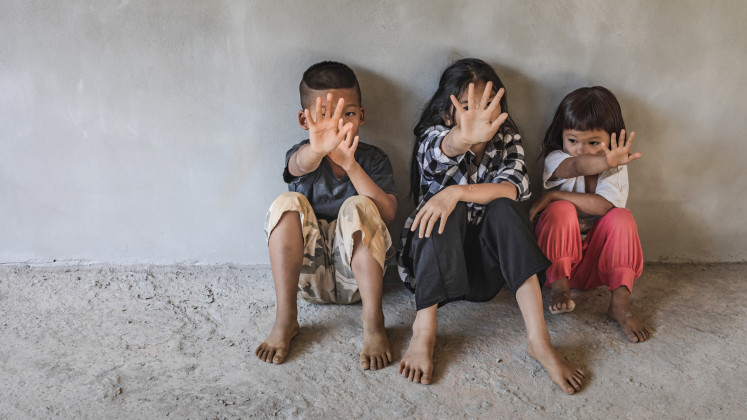Popular Reads
Top Results
Can't find what you're looking for?
View all search resultsPopular Reads
Top Results
Can't find what you're looking for?
View all search resultsPertamina rejects offer to take turns with Total
State-owned oil and gas producer PT Pertamina has rejected a proposal from the government to take two year turns with France-based Total SA to operate the Mahakam block in East Kalimantan after the latter’s contract expires in 2017
Change text size
Gift Premium Articles
to Anyone
S
tate-owned oil and gas producer PT Pertamina has rejected a proposal from the government to take two year turns with France-based Total SA to operate the Mahakam block in East Kalimantan after the latter’s contract expires in 2017.
“It is impossible to do because it takes long-term planning before we can invest our money in the upstream business. I just do not see it working,” said Afdal Bahaudin, Pertamina’s investment and risk-management director on Friday.
Previously, Deputy Energy and Mineral Resources Minister Rudi Rubiandini said the government was unlikely to allow Pertamina to entirely take over the Mahakam block operation due to technical problems. Rudi said oil production would be in jeopardy if the block, which comprises around 30 percent of the country’s gas output, was assigned to a new operator.
In response, Afdal insisted that Pertamina’s track record in taking over the North West Java offshore (ONWJ) and West Madura offshore (WMO) blocks had proved the company was capable of boosting the Mahakam Block’s oil production.
“We should not doubt the ability of our nation’s company,” he said. “However, it is still too early for us to state our production target for the Mahakam block because we have yet to receive any clarity from the government.”
Last May, Pertamina took over the operation of the WMO block from South Korea-based Kodeco Energy. In June 2009, Pertamina secured BP’s interest in the ONWJ block by purchasing 100 percent of BP West Java Ltd., which was the operator of the block and held a controlling 46 percent stake.
According to the firm’s work and budget plan, in 2012, the ONWJ and WMO blocks will lead the contribution of oil production with 18,638 barrels per day (bpd) and 16,258 bpd respectively.
Separately, Pertamina president director Karen Agustiawan told reporters in Jakarta on Friday that the company was currently still negotiating with the government to become the Mahakam block’s operator after its contract expired.
“We’re ready to take over the block’s main operator but the final decision is the government’s,” said Karen. “Basically, the question is whether one can manage the assets of the offshore blocks. Pertamina has proven its capability to do that in both the ONWJ and WMO blocks.”
Komaidi Notonegoro, the vice director of the ReforMiner Institute, an Indonesian energy sector think tank, said that while the government should include Pertamina in the Mahakam block’s new contract, it should not entirely rule out Total because it would create a negative impact on the country’s investment climate in the oil and gas sectors.
“If the government decides to not renew all of the concessions contracts, then investors might not want to spend their money here as oil and gas business is a very high-risk business with long-term planning,” he said.
The analyst suggested the government to include Pertamina as a block operator in the Mahakam block’s upcoming contract. The government, he said, should have both Total and Pertamina “sit together” to formulate the cooperation between the two companies.
“Including determining which company should become the main operator,” he said.
Separately, Rudi said the government was still reviewing Mahakam’s contract, adding that there were “still many factors to consider”.
“Please be patient, we are still studying the contract,” he told The Jakarta Post in a text-message.
Indonesia, a former member of the Organization of Petroleum Exporting Countries (OPEC), became a net oil importer three years ago. Currently, its oil output has declined to 881,000 barrels per day (bpd) in 2012, below the government’s target of 930,000 bpd. (asa)










